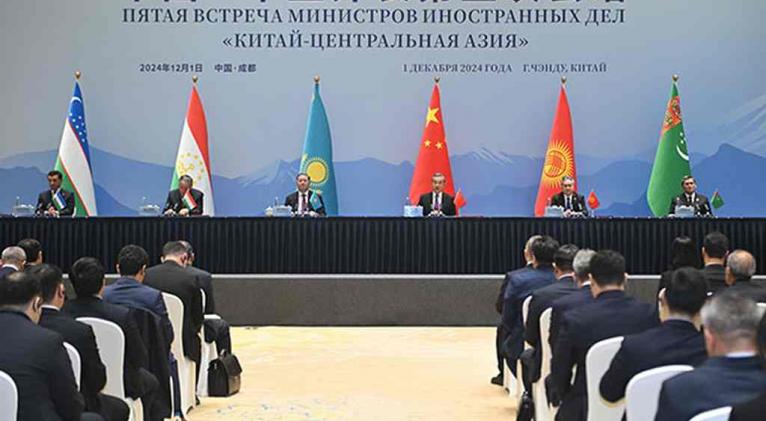China-Central Asia strengthen strategic cooperation ahead of summit
especiales

The fifth China-Central Asia foreign ministers' meeting was held here today, with an emphasis on establishing strategic lines for the next summit of regional leaders. After the meeting, Chinese Foreign Minister Wang Yi highlighted the main consensus reached among parties.
The ministers agreed to strengthen the China-Central Asia cooperation mechanism, in line with the agreements of the last Xian Summit, and to support Kazakhstan in organizing the next presidential meeting, scheduled for 2025.
In addition, negotiations will begin on an action plan linked to the construction of the Belt and Road Initiative, a permanent cooperation treaty between the countries involved and other key sectoral projects.
The Chinese foreign minister stressed the importance of sharing modernization, citing six related priority areas: trade, industrial investment, connectivity, mineral resources, modern agriculture and human mobility.
Delegates focused on the expansion of cooperation in areas, such as the application of the BeiDou system, poverty reduction, desertification control and higher education.
In the area of security, it was agreed to implement global initiatives to combat terrorism, protect regional stability and support the peaceful reconstruction of Afghanistan.
The countries also reiterated their rejection of foreign interference and any attempt to destabilize Central Asia.
They also advocated exchange of views on governance experiences, the expansion of educational and health projects, as well as strengthening of cultural ties.
China announced that in the next three years it will offer 1,500 training posts and 600 scholarships for countries in Central Asia.
The foreign ministers reaffirmed the defense of multilateralism and opposition to protectionist policies, while advocating a multipolar world and an inclusive global economy. They also pledged to support China in its rotating presidency of the Shanghai Cooperation Organization, promoting development and stability in the region.














Add new comment